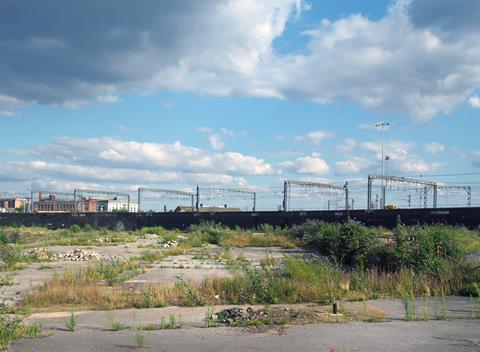A survey commissioned by Landsec, British Land and Berkeley found that almost 80% of people felt urban regeneration would have a positive impact on their area
Seven in 10 respondents to a survey commissioned by Landsec, British Land and Berkely said that urban regeneration of brownfield sites would have a positive impact on their area.

In addition, the majority of people surveyed said they perceived underdeveloped brownfield sites as ‘wasted potential’.
The survey was of 1,829 individuals across the four different urban locations: Cambridge, Camden, Manchester and Newham.
It was conducted through the digital engagement platform, Commonplace, on behalf of the real estate investment trusts Landsec and British Land, and developer Berkeley.
>> See also: Ministers seek views on brownfield planning passport to speed up development
>> See also: Competition regulator to review GMCA brownfield housing scheme
The report noted that 60% of those polled had negative views of currently underdeveloped brownfield sites, viewing them as “ugly, dirty and unsafe”.
In addition, 75% of respondents viewed the underdeveloped brownfield land as a “wasted potential”.
A report commissioned by the three developers last year found that there is the potential to deliver over 1.3 million homes and generate over one million jobs by 2035 through the “thoughtful densification” of brownfield sites in urban areas.
The report noted that 75% of respondents would like to see brownfield regeneration prioritised over other forms of development.
The research also found that where taller or denser development unlocks greater benefits, such as additional infrastructure, to the community, local people are prepared to support it over lower rise development.
The three developers are calling on the government to prioritise brownfield development, by providing more grant funding to enable infrastructure delivery and unlock sites, and creating investment incentives by recognising costs when incurred rather than when homes are sold.
The report also calls for the government to support the financial capacity of housing associations and increase the level and efficiency of grant funding to increase affordable housing delivery.
Another policy recommendation in the report is that the government enable greater publication participation in the planning and development process, by linking brownfield passports to a community participation programme which would enabkle more open dialogue between developers, councils and communities.
Over the weekend, the government published a working paper asking for views on its plan to introduce a system of “brownfield passports” to speed up development on urban sites.
Simon Carter, chief executive officer at British Land, said: “This new research – which focused on surveying a true snapshot of those who live, rent and work in urban areas - demonstrates that urban communities are overwhelmingly YIMBY when they are involved in the process and the benefits of development are clearly understood.”
Carter added: “Contrary to public perception, it is clear that this group want to see brownfield urban regeneration that delivers for the local community, creating a unique opportunity for new pragmatic policies that leverage the support of this critical demographic to unlock delivery and growth.” .










No comments yet